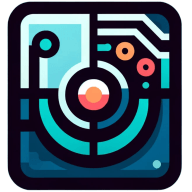7 Programming Languages I Enjoy for Personal Projects and Why
Programming enthusiasts seeking new tools for personal projects can benefit from understanding the real-world applications of various languages. This article presents insights from expert developers about the balance between creativity and logic in Python, as well as the enterprise-level performance of C#. Experienced programmers share their practical reasons for choosing specific languages that maximize both enjoyment and productivity.
Python Bridges Creativity and Logic Effortlessly
For personal projects, I keep coming back to Python. It's the one language that feels less like coding and more like creative problem-solving. There's an elegance to its simplicity—you can go from idea to prototype in hours, not days, without getting lost in syntax or setup.
What I love most is how Python acts like a universal connector. Whether I'm building quick data visualizations, automating workflows, or experimenting with AI models, it lets me move fluidly between creativity and logic. It's a language that rewards curiosity. You can start with a basic script to clean data and end up designing a system that predicts user behavior, all in the same ecosystem.
There's also something very human about it. The readability makes collaboration effortless—you can open a file months later and immediately understand what you were thinking. For someone who spends much of their day solving business problems, that clarity is gold. It reduces friction, which keeps you in flow.
One of my favorite personal projects involved using Python to analyze public startup data and map founder-market fit patterns. It began as a weekend curiosity and ended up changing how I evaluate growth-stage opportunities. That's the beauty of it—Python turns tinkering into tangible insight.
I think that's why it resonates with so many entrepreneurs and builders. It's not just a language for engineers—it's a thinking tool. It encourages experimentation, quick iteration, and clean logic, which are the same principles that drive good strategy and innovation.
C# Delivers Enterprise-Grade Speed Without Obstacles
I use C# with .NET Core for building personal projects. The familiar environment of enterprise work allows me to create prototypes at high speed through ASP.NET Core APIs and small background services that use hosted workers. The tooling operates dependably while the ecosystem has reached a level of maturity that makes it rare for me to encounter any development obstacles.
The platform enables me to test concepts which could become useful for client work including minimal API development and Kestrel benchmarking. The platform enables me to create efficient production-ready applications without unnecessary complexity.

Python Turns Ideas Into Code Quickly
Python stands out as an excellent choice for personal projects due to its ability to quickly turn ideas into working code with very little setup. The clean, readable syntax allows developers to focus on solving problems rather than wrestling with complex language rules. Python's vast ecosystem of libraries means that almost any functionality needed is just a simple import away, saving valuable development time.
The language truly shines when creating prototypes or proof-of-concepts where speed of development outweighs performance concerns. For beginners and experienced programmers alike, the gentle learning curve makes it possible to build meaningful projects quickly without getting bogged down in details. Try Python for your next weekend project to experience how much you can accomplish with minimal code.
Rust Balances Safety With Performance
Rust has emerged as a powerful programming language that offers the perfect balance between high-level convenience and low-level control. Developers appreciate its unique ownership model that prevents memory-related bugs and race conditions without requiring garbage collection. The compiler acts like a patient teacher, providing helpful error messages that guide programmers toward writing better, safer code.
Despite its focus on safety, Rust achieves performance comparable to C and C++ while eliminating entire categories of bugs that plague those languages. The growing ecosystem around Rust includes tools for web assembly, embedded systems, and cloud computing, making it versatile enough for nearly any project type. Consider exploring Rust for your next performance-critical application to experience how safety and speed can coexist.
Ruby Prioritizes Human Needs Over Efficiency
Ruby was created with the radical notion that programming languages should prioritize human needs over computer efficiency. The language's elegant syntax reads almost like natural English, reducing the mental translation effort required when coding complex logic. Ruby's blocks and yielding mechanisms allow for expressive code that communicates intent clearly to other developers.
The language encourages a thoughtful, object-oriented approach where everything is treated consistently as an object with its own behaviors. Ruby's metaprogramming capabilities enable frameworks like Rails to create domain-specific languages that make complex tasks feel straightforward and intuitive. Dedicate an afternoon to building a small utility in Ruby to experience how a programming language can be designed around developer happiness and productivity.
JavaScript Provides Immediate Visual Feedback
JavaScript creates a uniquely satisfying development experience by providing immediate visual feedback in the browser environment. Developers can write code and see results instantly without lengthy compile times or complex deployment processes. The language's event-driven nature makes it particularly well-suited for creating interactive applications that respond to user actions in real-time.
With the rise of Node.js, JavaScript has expanded beyond the browser, allowing developers to use the same language throughout their entire stack. The massive npm ecosystem offers solutions for virtually any programming challenge, from animation libraries to server frameworks. Start building a small interactive web application today to experience the satisfaction of seeing your code come to life instantly in the browser.
Go Simplifies Concurrency at Scale
Go was designed specifically to address the challenges of modern software development at scale with simplicity as its core philosophy. The language's approach to concurrency through goroutines and channels makes parallel programming accessible without the complexity of traditional threading models. Go's compilation speed and efficient binary outputs result in a development workflow that feels interactive while producing production-ready executables.
The standard library is comprehensive yet focused, providing most tools needed for network services and web applications without overwhelming developers with options. Many programmers find that Go's intentional limitations guide them toward writing clearer, more maintainable code that performs well under pressure. Take some time to explore Go's concurrency model with a simple network service project and discover how it simplifies parallel programming.


